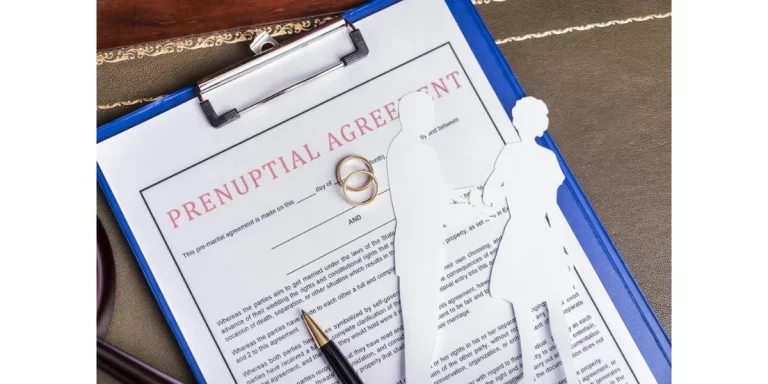Every family law matter is uniquely different, however, one issue that commonly arises in child custody disagreements is parental alienation.
This issue can add stress, upset and further acrimony to the situation, making it all the more difficult to come to a resolution.
A fundamental part of family law across Australia, particularly in relation to a child’s best interests, is case law.
In this article, Justice Family Lawyers will be exploring case law relating to parental alienation and child custody disagreements to provide readers with a better understanding of this difficult situation.
Key Points
- Parental alienation can greatly influence child custody disagreements, making it difficult to decide what is in the best interests of the child.
- Case law provides a framework within which to determine the right outcome for a child and their custodial environment.
- Third-party assistance may be beneficial in preventing or resolving parental alienation issues.
Is Parental Alienation Recognised In Australia?
In Australia, parental alienation is an emotionally charged issue – often leading to an array of pre-court dispute resolution protocols.
These protocols are designed to give families time to work through issues and come to an agreement or at least have some ideas as to how to approach the court.
In a custody case, the court will refer to various circumstances that may contribute to alienation; such as estrangement.
There have been multiple cases where the Court has referred to specific cases of parental alienation explicitly
Parental alienation occurs when one parent attempts to undermine the other parent’s relationship with their children.
This can happen through various forms, such as having the children spy on the other parent, exclusion from family events or members, and involving the children in arguments.
This can have a severe impact on children, especially if it is left unresolved.
Also read: Parental Alienation Signs and Examples You Should Watch Out
Case Law on Parental Alienation
In terms of case law on parental alienation, the High Court case of Cowling v Singh (2008) looked at an allegation of parental alienation.
In this case, the court ruled that if any form of alienation is found, then the court has to consider the living arrangements that would be in the best interests of the child.
Appealing to the High Court of Australia, a mother alleged that the father had been alienating her daughter against her for a decade.
In this case, the court noted that the mother was emotionally dependent on the daughter’s affections and was also alienating the father from the daughter.
Breakwell (2008)
In the Family Court Case of Breakwell (2008), the judge noted that while there was evidence of parental alienation, the best interests of the child must be the primary consideration.
The father had been found to have alienated the mother from the children, but the court noted that this must be set against the mother’s impact on the children’s lives.
The court found that the mother’s alienation of the father was not as damaging to the children as the father’s alienation was.
The court ultimately found that the child should live predominantly with the father as he had been less dominant over the children and provided greater stability to the children.
Kinsella v Kinsella (2007)
In the case of Kinsella v Kinsella (2007), it was found by the court that the father had engaged in a campaign of alienation against the children.
He had misled the children about their mother, made false allegations about her parenting style, and was found to have ignored the children’s psychological needs.
The court found that the father’s attempt to alienate the children from their mother was unnecessarily damaging and ordered that the mother have sole parental responsibility.
Rosa v Rosa ([2006] FamCA 1196)
The mother consistently hindered the father’s relationship with their child and disobeyed court orders for visitation. The court found these actions against the child’s best interests and awarded sole custody to the father, highlighting the potential severe legal consequences of parental alienation.
Eames and Eames ([2012] FamCAFC 36)
In this case, the father sought sole parental responsibility due to allegations of parental alienation by the mother. The trial judge agreed that the mother had caused significant alienation. However, the judge decided it would not be in the children’s best interests to transfer primary care to the father due to the potential emotional impact on the children. The judge instead ordered that the children participate in therapy to help restore their relationship with their father.
Vos and Cox ([2012] FamCA 375)
The court was faced with a mother who was found to have contributed significantly to her children’s estrangement from their father. The court took a drastic step by reversing the children’s primary residence from the mother to the father. The judgment highlighted the importance of children maintaining a relationship with both parents and demonstrated the courts’ willingness to take decisive action in parental alienation cases.
Webb & Statham ([2014] FamCA 14)
In this case, despite the children expressing an aversion to spending time with their father, the court determined that the mother had deliberately influenced the children’s perspectives and impaired their relationship with their father. This led to the court ruling in favour of changing the primary residency of the children to the father.
Karlsson & Karlsson [2022] FedCFamC2F 1604
In the high-conflict co-parenting case of Karlsson & Karlsson [2022], the Australian family court intervened to protect the well-being of three children (MR M, X, and Y) caught in a bitter battle between their parents. The relationship between the parents had deteriorated significantly, marked by frequent disputes and accusations of parental alienation by the father. The father had been demanding equal shared parental responsibility and unrestricted access to the children, despite concerns raised by the mother about his behaviour and the children’s expressed wishes.
The court’s decision to award the mother sole parental responsibility directly responded to the escalating conflict and the potential harm it posed to the children. The living arrangements and the structured time-sharing plan aimed to create a stable and secure environment for the children, shielding them from the ongoing parental discord.
Additionally, the mother’s authority to obtain travel documents and travel internationally with the children without the Father’s consent was a safeguard against potential obstruction or interference from the Father. The court’s order regarding the father’s contribution to legal fees acknowledged the financial burden placed on the mother in seeking to protect the children’s best interests.
Conclusion
When looking at the case law on parental alienation in the context of a custody dispute, it is important for the court to consider the impact of judicial decisions on the children’s best interests.
As seen in the above cases, the court can determine that the best interests of the child require the father or mother to have sole parental responsibility, or it can order third-party assistance of some kind.
To ensure the best outcome is achieved, both parents should consider ways to work together – focusing on their child’s psychological needs.
At Justice Family Lawyers, we understand this is a difficult situation and we are here to help guide you through the family law process.
As the above case law on parental alienation illustrates, parental alienation is a complex and emotionally charged issue – one that requires the knowledge and expertise of an experienced child custody lawyer.
Justice Family Lawyers are experienced in navigating the complexities of family law to ensure the best results for our clients.
To speak to an experienced family lawyer regarding your parenting matter, contact Justice Family Lawyers today.
Principal of Justice Family Lawyers, Hayder specialises in complex parenting and property family law matters. He is based in Sydney and holds a Bachelor of Law and Bachelor of Communications from UTS.






2 thoughts on “Case Law on Parental Alienation in Child Custody Disagreements”
Are there more recent cases that could provide insight. Surely the court has made decisions using the most recent science to back itself up – science that has been published in the last decade.
Hi Claire. A recent case to look at would be Karlsson & Karlsson [2022].